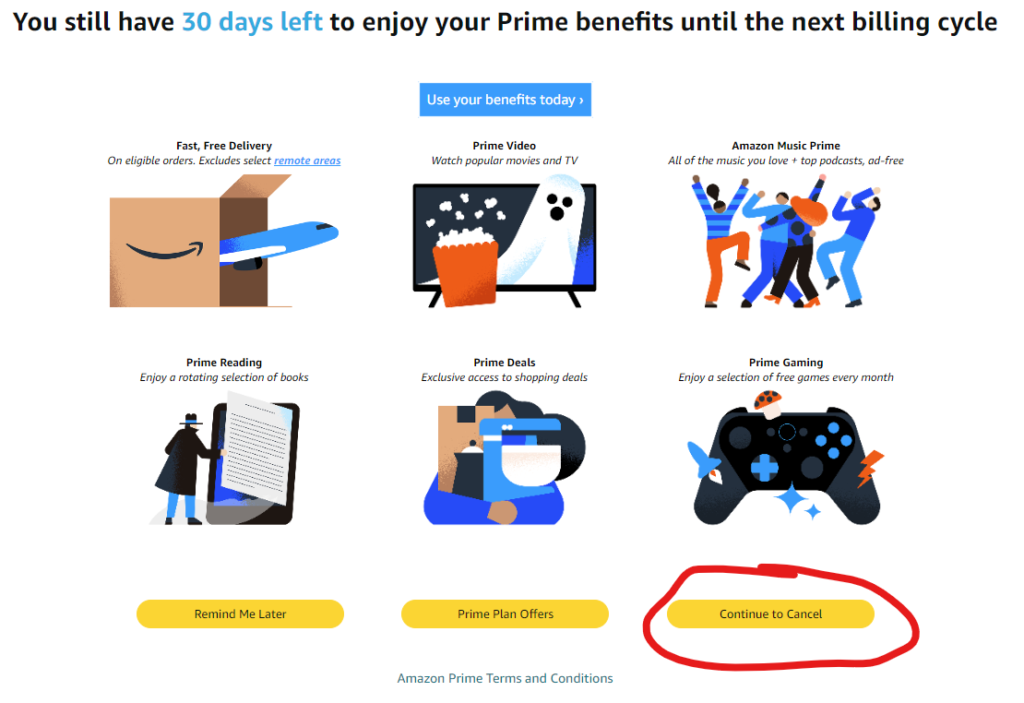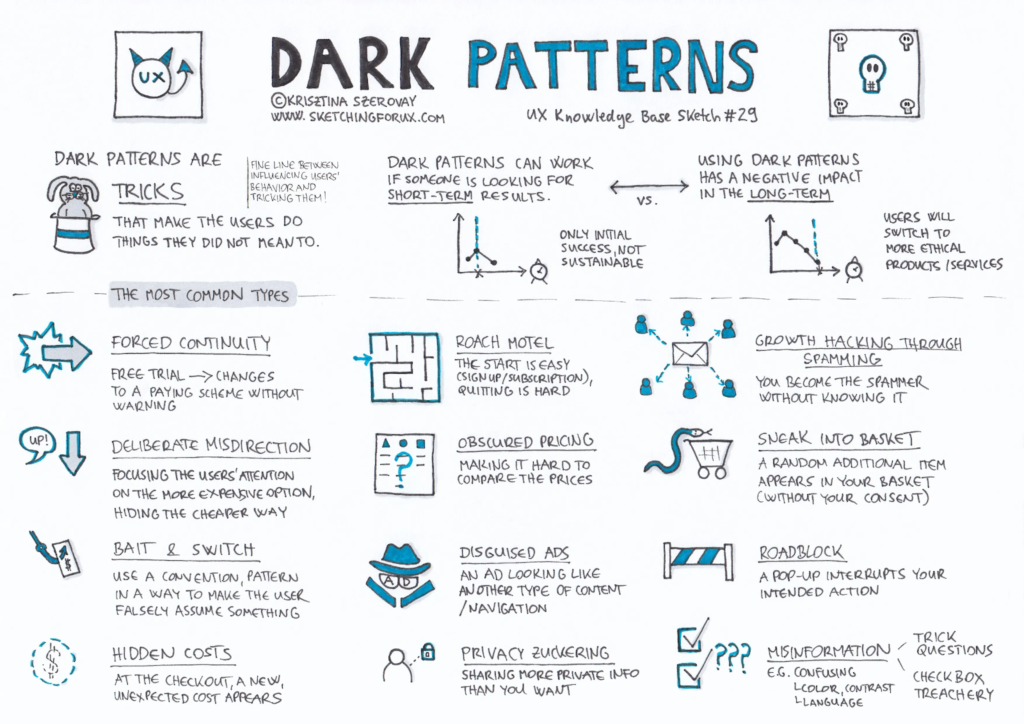A proposed opinion article for the YapRap website
Dark patterns are sneaky, deceptive marketing techniques used in apps, media, and websites to manipulate Australian youth. While these tactics are highly profitable for companies, I believe they are highly unethical, especially when aimed at young Australians.
Growing up in a digital world Australian youth are prime targets for these manipulative tricks It is time to call out and spread awareness of the dark patterns for what they are: manipulative, exploitative, and damaging to young people’s trust in the online world. Banning dark patterns will help protect young Australians and help create a fairer online environment.
How Dark Patterns Target Australian Youth
Dark patterns are designed to trick users into doing things they wouldn’t usually do, like accidentally signing up for an expensive subscription or buying in-game items with real-world money. Australian youth, who are frequent users of mobile apps and games are especially vulnerable to these marketing tactics. Dark patterns play on the emotions of curiosity, excitement, and inexperience, making them an easy target for these deceptive marketing strategies.

Take “free-to-play” mobile games for example. While these games are marketed as “free” they often use dark patterns to nudge young and old Australians into spending real-world money on in-game items such as gems or coins to progress faster. By using a sense of urgency or a fear of missing out, these games pressure Australian youth to make purchases and microtransactions they might not even fully understand.
It’s not just games, many services use complicated cancellation processes to keep users locked into recurring payments. For example, Amazon has a monthly recurring subscription of $9.99 (AUD) which is deliberately hard to find. Today I tried cancelling my Amazon Prime subscription and it is hidden behind about 5 different menus I can confirm the quote: “the site to cancel a membership is made deliberately hard to find” (Guzman, 2023) is accurate. If adults struggle with these tactics, imagine how confusing it is for young people.



When young Australians encounter these tricks, it doesn’t just cost them money. It creates a culture where online spaces are viewed as untrustworthy and hostile. This is especially concerning as they are at the age of creating lifetime habits and learning how to deal with digital platforms.
The dark side of advertising on Australian social media
According to the ABCs article Issy Coghill’s experience with dark marketing on social media is an example of how scary these tactics can be. After engaging with an add advertising a vape claiming to reduce anxiety the 21-year-olds social media began to flood with ads for other smoking products many claiming to be legitimately related to mental health organisations. However, after buying one of these products the online store shut down within six months overnight without explanation. Other people have not been so lucky.
also according to the ABC “In June, five people were hospitalised with seizures and vomiting after consuming “mushroom gummies”, which had been advertised on social media as an anxiety treatment.” these products were advertised on social media to young people likely due to their habits and behaviours on the social media platforms.
This brought to light the issue of dark patterns used in marketing material and the need to better regulate online accountability measures for consumer protection
Why We Need to Ban Dark Patterns to Protect Young Australians

Dark patterns don’t just trick people they also undermine trust in online spaces, which is harmful to young Australians. When companies use these shady tricks and marketing tactics they send the message that it’s okay to manipulate their users for profit, which goes against values like honesty, fairness and respect. Young people deserve a digital world that respects their choices, not one that’s consistently trying to deceive them.
Banning dark patterns would send a powerful message: that we value ethical and transparent practices in online spaces, especially when it comes to the digital experiences of Australian youth. By banning these predatory tactics we can foster a healthier and more trustworthy digital culture, where young Australians feel uplifted, not exploited.
Working Toward a Fairer Digital World for Australian Youth

References
(n.d.). Deceptive Patterns (aka Dark Patterns) – spreading awareness since 2010. Retrieved October 4, 2024, from https://www.deceptive.design/
Cousins, C. (2019, January 28). What Are Dark Patterns? (And Why You Shouldn’t Use Them). Design Shack. Retrieved October 12, 2024, from https://designshack.net/articles/ux-design/dark-patterns/
Friends Enjoying Technology Image. (n.d.). StockCake. Retrieved October 12, 2024, from https://stockcake.com/i/friends-enjoying-technology_114481_56449
Guzman, A. (2023, June 23). Amazon’s ‘dark patterns’: These six design tricks make it almost impossible not to sign up for Prime when you buy something, the FTC says. Yahoo Finance. Retrieved October 4, 2024, from https://finance.yahoo.com/news/amazon-uses-six-dark-pattern-152655326.html
Internet Safety and Security – Quick Notes – KIH. (n.d.). Kingston Interval House. Retrieved October 12, 2024, from https://kingstonintervalhouse.com/resource-items/internet-safety-and-security-short/
Mori, S. (2021, May 19). Help Bring Dark Patterns To Light. Electronic Frontier Foundation. Retrieved October 4, 2024, from https://www.eff.org/deeplinks/2021/05/help-bring-dark-patterns-light
Peter, M. (2023, February 6). Dark Patterns in Popular Mobile Apps | by Marc Peter. Medium. Retrieved October 12, 2024, from https://medium.com/@marcpeter1997/dark-patterns-in-popular-mobile-apps-296011029579
Szerovay, K. (2017, Nov 1). Dark Patterns. UX Knowledge Base Sketch #29 | by Krisztina Szerovay. UX Knowledge Base Sketch. Retrieved October 12, 2024, from https://uxknowledgebase.com/dark-patterns-3b41ed7a690e
Bowman, J., & Macmillan, J. (2024, August 19). Dark marketing on social media platforms helping fuel the trade of potentially harmful products. ABC. Retrieved October 12, 2024, from https://www.abc.net.au/news/2024-08-20/australia-dark-marketing-online-advertising-tga-health-warning/104118822

